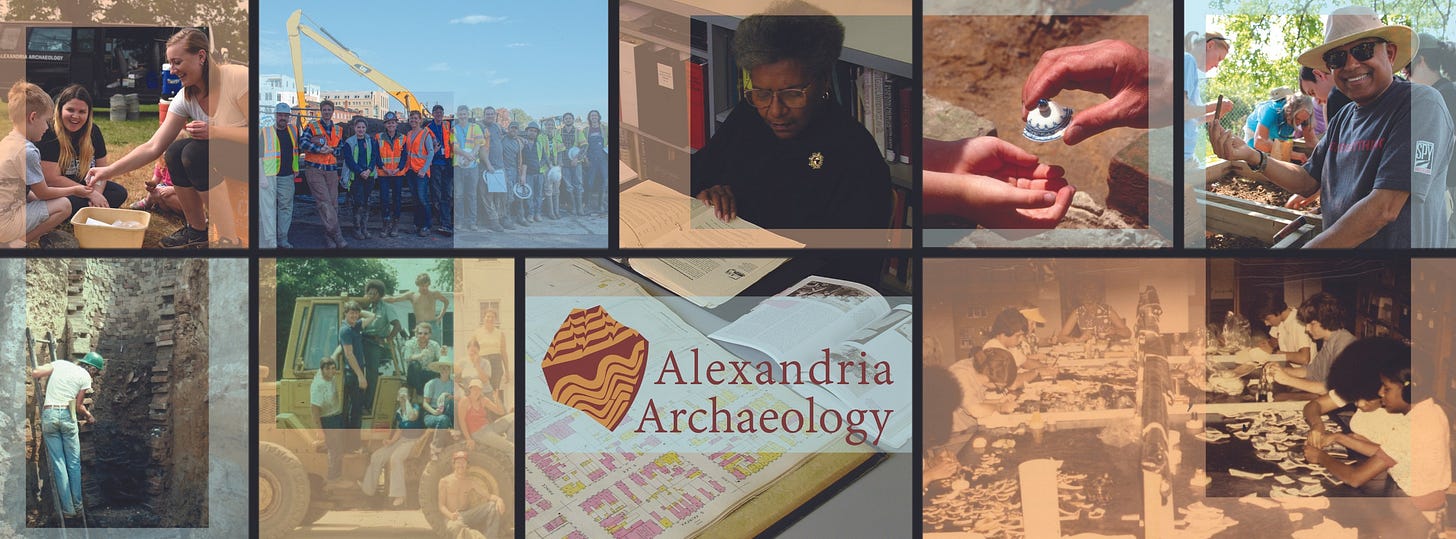City Council to vote on accepting historical archaeological collection
Artifacts from Colross estate, an early 19th-century plantation site, have been stored in Maryland since 2003 excavation
Alexandria City Council will consider accepting an archaeological collection from the Colross estate site during its legislative meeting next week, a move that would bring artifacts from one of the few studied urban plantation sites back to the city.
The collection, excavated from the 500 block of North Henry Street in the early 2000s, has been stored at Goodwin & Associates, a cultural resource management firm in Frederick, Maryland, since the dig concluded. The firm is now looking to transfer the materials to the city after its recent office relocation.
The site, now home to The Henry apartment building and a Domino’s Pizza, was once the Colross estate, an early 19th-century plantation where construction began in 1799. The property passed through several prominent owners, including diplomat Jonathan Swift and Circuit Court Judge Thomas Mason, grandson of George Mason.
“Colross was a place of enslavement for numerous African American people within these households over the decades,” according to a city memorandum.
Alexandria Archaeology, which curates about 3 million artifacts from over 260 sites, is the preferred repository for collections excavated within city limits. However, the Colross collection was never formally deeded to the city following the 2003 excavation.

Goodwin & Associates attempted to contact the original property developer, Diamond Properties LLC, but the company has since dissolved. The cultural resource management firm expressed support for transferring the collection to Alexandria in a September letter.
The collection consists of five boxes containing 19th-century ceramics, glass, metal and other materials, along with associated records. City staff would use Virginia’s undocumented property law to establish clear title, a process that begins five years after receiving the collection with public notices in local newspapers.
The fiscal impact is expected to be minimal, with newspaper advertising costs ranging from $50 to $250 per column inch.
The excavation revealed well-preserved features including stables, an outdoor kitchen, a mid-19th-century cistern and elaborate brick walkways. During the Civil War, federal authorities seized the estate. The original mansion was moved to New Jersey in the 1930s.
The 500 block of North Henry Street is now the home of The Henry and Domino’s Pizza.
The meeting begins at 7 p.m. Wednesday at City Hall.

